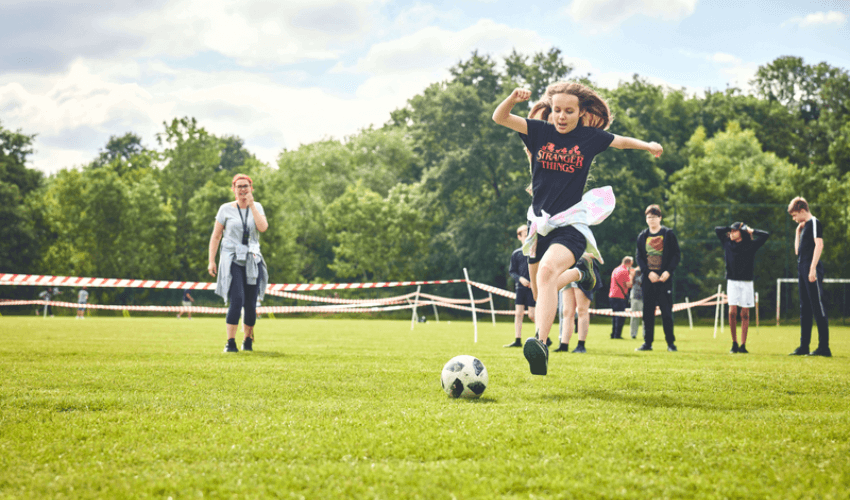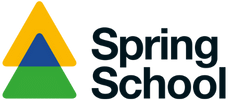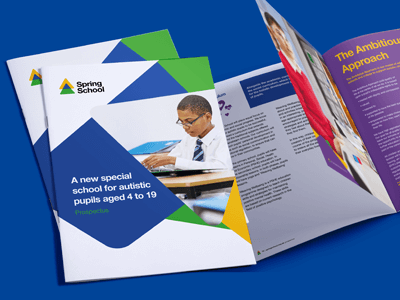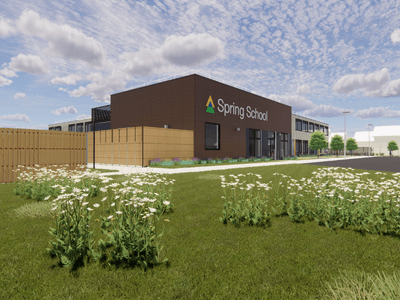
On this page, you will find details about our curriculum offer at The Spring School. If you have any queries or wish to find out more about our offer, please contact us at enquiries@springschool.org.uk
Spring School will give pupils the support and challenge they need to reach their full learning potential. The school will have academic, personal, social and independence targets to provide autistic pupils with ambitious aspirations. Pupils will work towards gaining academic and vocational qualifications, that will help them succeed in the world beyond school. The curriculum complies with both the Equalities Act 2010 and Special Needs & Disability Act 2014 to ensure it is accessible and aspirational for all.
See the Spring School curriculum map.
Academic curriculum
Once at capacity, our core class model will be up to eight pupils with a teacher and one teaching assistant supported by curriculum leads and a transdisciplinary team.
The primary and secondary school curriculums will enable pupils to develop the academic and social skills necessary for success.
Our primary school will be made up of classes, each with a different teacher who will teach most of the curriculum. In addition, some specialist teachers will be responsible for subjects such as physical education and music.
Students in the secondary school will work with a range of subject specialists and, where appropriate, engage in social and learning opportunities at nearby mainstream secondary, Chessington School.
We will enable pupils to achieve a range of academic and vocational qualifications that best suit their learner profiles and needs. Pupils will follow the national curriculum, which includes classes in English, maths, science, art, computing, history, music, physical education and food technology. All pupils will experience explicit RSE, PSHE and RE teaching on a weekly basis, with additional teaching opportunities as they arise and tailored to improving the Quality of Life and lived experiences of pupils. The designated phonics scheme, used across the school, is Sounds-Write.
Social curriculum
Alongside the academic curriculum is the social curriculum, which is essential for the holistic development and wellbeing of pupils.
In the primary school, pupils will take Personal, Social, Health and Economic (PSHE) education and in the secondary school pupils will take citizenship lessons. In both phases, pupils will have yoga and ‘Weaving Wellbeing’ lesson too.
Weaving Wellbeing is a PSHE education programme designed to teach children skills and strategies for maintaining positive mental health. These skills are based on current research in the field of positive psychology.
The chart from weavingwellbeing.com, shows the main topics included in the Weaving Wellbeing programme.
Weaving Wellbeing helps children learn about and practice-specific behaviours and activities linked to wellbeing, in an interesting, pupil-centred and age-appropriate way. Pupils are encouraged to practise the skills, strategies and activities, to see how they feel about them, and how useful they find them.
In this way, children learn how to become creators of their own wellbeing. Over the course of the programme, they learn how to weave all the elements of wellbeing into their everyday life.
Another core component of effective PSHE is ensuring that children are developing skills that will support them to transition onto the best next steps when they leave school. We ensure that children are equipped with these skills through overt learning and opportunities such as trips and visits to local businesses to learn about jobs in a variety of different sectors and through personalised transition planning. Take a look at this visual resource which illustrates this journey.


